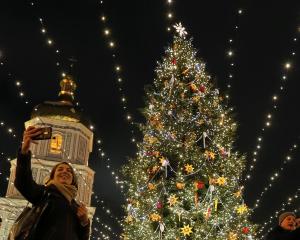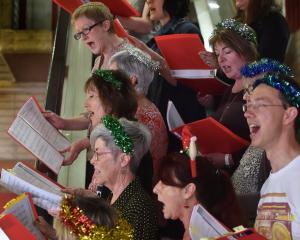Did you ever have a silly song in your head you wished you could get rid of?
It happens to us all. Some songs are so contagious that if one person hums the tune for two minutes, soon everyone in the room will be humming or thinking about the same song.
Once we know something, we find it hard to imagine what it is like to not know it.
This is the curse of knowledge.
Epictetus, a Greek Stoic philosopher, once said: "It is impossible for a man to learn what he thinks he already knows."
This can relate to all aspects of life, including Christmas.
Much of what we know about Christmas is inherited and we suffer a crisis of imagination.
We have never stopped to seriously question it.
I remember when I first became aware of the pagan origins of Christian celebrations like Christmas and Easter.
Discovering that early Christians had co-opted existing pagan celebrations was a big shock.
There is no Santa Claus, much less Christmas celebrations, in the Bible.
But those who look at that fact and decide the responsible thing is to avoid celebrating Christmas altogether - or just consider it all humbug - really miss the point.
Nearly all cultures, and even religions, have holidays around this time of year, most of which were started to celebrate the turn from shorter and shorter days to longer and longer ones - the move from darkness to light.
When early Christians looked at that it seems they had a really good idea.
There's no reason to think that Jesus was born on December 25.
He was most likely born in the spring sometime, because the shepherds were out in the fields keeping watch over their flocks - a spring activity.
But even though there's no reason to believe He was born on December 25, there are great reasons to celebrate then.
So what to do when your culture has celebrations hard-wired in? We can fight that and talk about it like it's all humbug, but it is a celebration - the coming of light into the world after a time of darkness.
Hmmm. Sounds familiar. Sounds perfect, in fact.
I love the irony of taking something meant to point to one thing and making it point to a better thing, like the solstice celebrations.
We took something that pointed at the sun and pointed it in a different direction: towards the One who made the seasons, the sun and the moon, the One who came to give us real reasons to celebrate.
Jesus.
So, if you don't want to celebrate, that's fine.
Your choice! But you're not just taking yourself out of a very Christian tradition, but a very human one as well.
There was a time when I would brazenly jump in to correct and teach the true meaning of Christmas, thinking nothing of criticising people's fumbling attempts to articulate their understanding of the season.
I now accept Christmas functions on a number of different levels.
Don't get me wrong - for those of us who believe Christmas is a religious celebration of the birth of Jesus, I'm not saying we dilute that understanding.
I'm just asking that we think a little more hospitably about the place we fill during the broader culture at this time.
There will be those of us who want to share our faith and will use the opportunity to set the scene for this Jesus of Nazareth, the most challenging and controversial figure of all human history.
How is it that a young king in Bethlehem, born with a price on his head, this infant born in a stinking manger in the middle of a genocide, could represent such a dangerous threat to the prevailing monarchy?
He represents the dangerous alternative: the possibility of a different empire, a different power, a different glory, a different peace and 2000 years after He walked the earth He still remains one of the most talked-about and influential people who has lived.
There will be others who will pick fights, and some will want to explain the true meanings behind the symbolism.
I have found people wanting to hear about Christmas in ways that transcend the consumerism that has hijacked the season.
We shouldn't underestimate how deeply and seriously a lot of people are thinking right now about what matters to them in life.
I read a wonderful piece recently: "Imagine Christmas as being like a giant bookstore, with a range of books; some serious, some populist, some trashy, some noble.
Every book is a 'Christmas' book though, of course, not every book is equal.
People are browsing and choosing, talking and comparing.
It's an active and buzzing place - most people are not sure why they are there, but they are trying to make sense of it and trying to have a little fun.
Do we really want to be hanging out in the comics section, chugging a slurpy and passing judgement on the people who 'don't get it'?"
- Tony Dudley, Orwell Street Church, Oamaru












